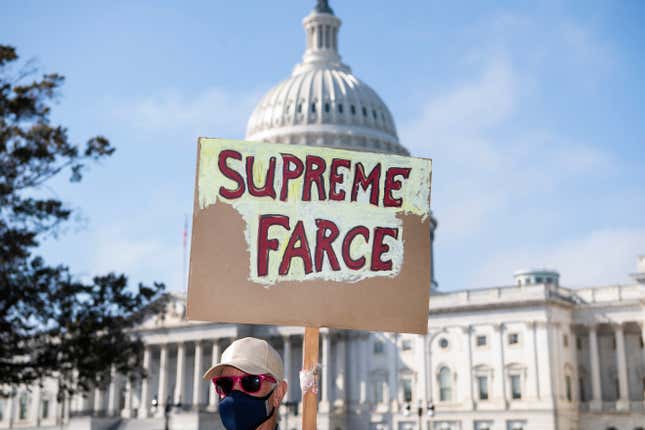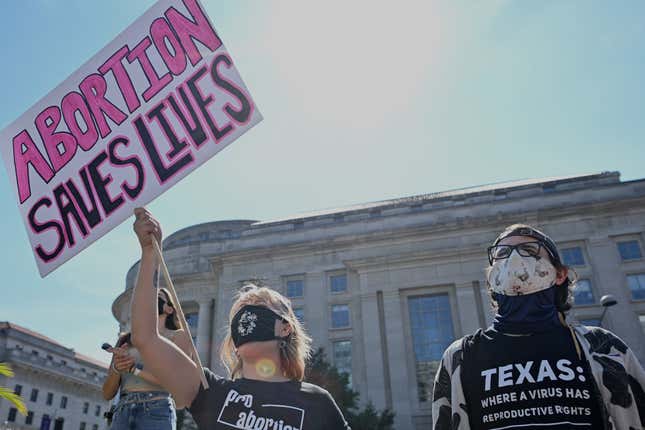Abortion Has Touched Your Life, Whether You’ve Had One or Not
Classrooms, workplaces, every inch of day-to-day life would look enormously different if those around you—loved ones, strangers—hadn't had access to abortion.
AbortionPolitics

Right now, per a leaked draft opinion from the Supreme Court, it’s looking a lot like Roe v. Wade—the precedent that made abortion legal in 1973—is on the brink of being overturned. Cited in said draft opinion to justify this jarringly inhumane decision, you’ll note, is a 17th century jurist who defended marital rape and ordered two women executed for “witchcraft.”
Many of us have been sounding the alarm on conservatives’ decades-long holy war on the basic health service (and all of the other fundamental rights whose fates are inextricably linked to Roe) for quite a while—only to be met with apathy from the public or assurances from overpaid white, male pundits that we were hysterical and overreacting.
Well, it sure looks like we were fucking spot on.
If the inevitable fall of Roe is your first entry into all of… this, one of the most important starting points in this conversation is understanding that abortion has touched all of our lives—whether you’re among the one in four women or pregnancy-capable people who have had an abortion or not. Your classrooms, workplaces, and nearly every inch of day-to-day life as you know it would look enormously different if people around you—family, loved ones, acquaintances, strangers—hadn’t had access to the abortion care they needed. Monday’s news should galvanize you to reflect on this. It should also galvanize you to follow the vitally important work of groups like We Testify and Shout Your Abortion, which have been transforming the conversations around abortion and stigma for years via storytelling.
-

-

-

-

-

-

-

-

-

-

-

-

-

-

-

-

-

-

-

-

-

-

-

-

-

-

-

-

-

-

-

-

-

-

-

-

-

-

-

-









































